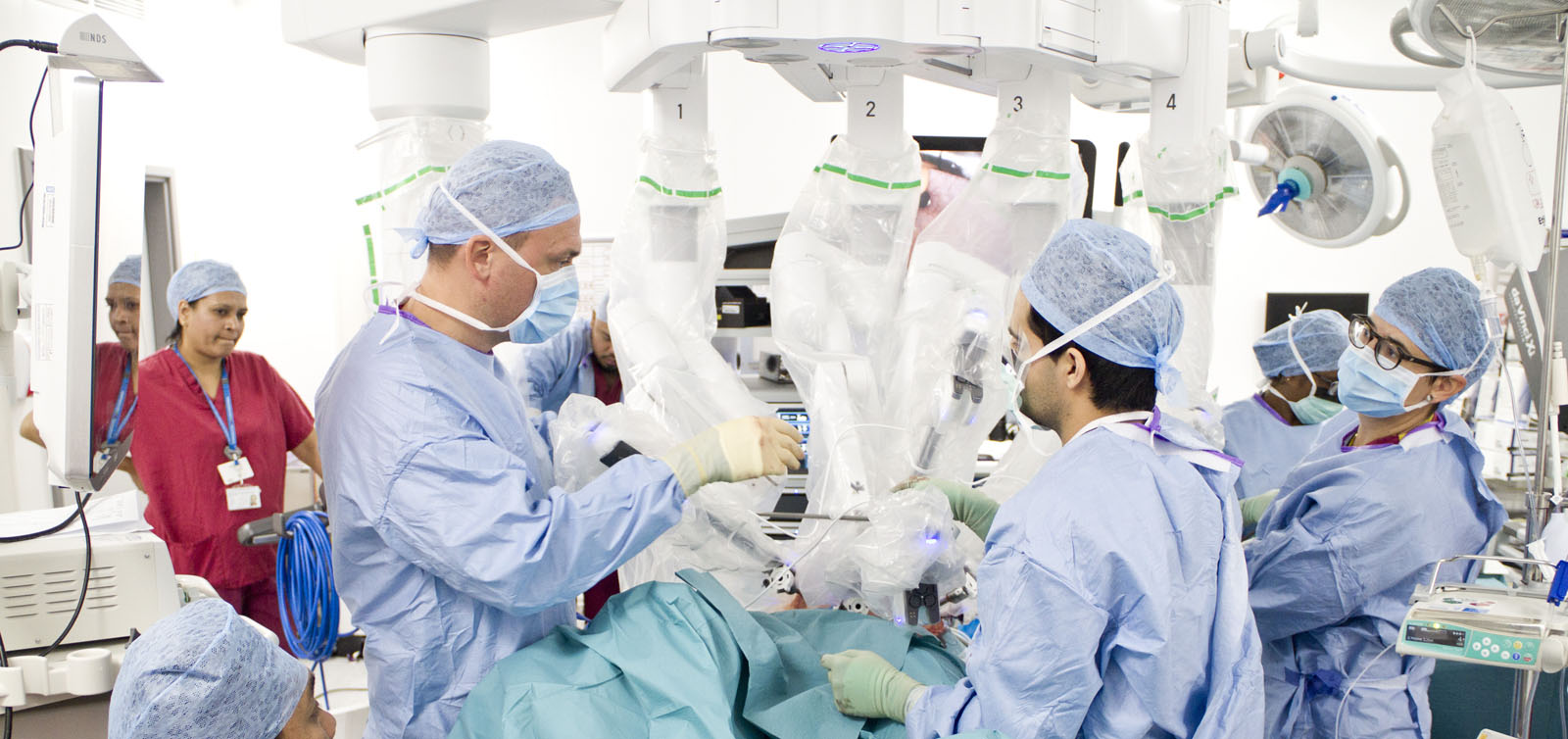Robotic Surgery at St Mark’s Hospital: a strategic priority
Robotic surgery for colorectal and anorectal surgery at St Mark’s Hospital has been designated as a strategic priority. Whilst robotic surgery has been established in other surgical specialties, principally in urology and gynaecology, its application has not been widely researched and implemented for bowel surgery. Robotic surgery at St Mark’s Hospital provides a tremendous opportunity for the world leading surgeons to address an unmet need.
At the heart of the Surgical Robotics Research Programme is the education and training of surgeons on this new and advanced platform.

Project Details
Mr Danilo Miskovic, an established robotic surgeon was recruited to St Mark’s Hospitals consultant staff in 2017. Mr Miskovic has led the development of the Surgical Robotics Research Programme.
The Hospital is immensely proud to be able to train staff on this new facility, the only surgical robotics platform in the UK dedicated to bowel surgery.
Furthermore, the introduction of robotic surgery is an important milestone in reducing the risk of recurrent disease because it has the potential to provide patients with improved short and long term quality of life.
Due to robotic surgery being a minimally invasive and precise surgical technique it can eliminate several of the limitations of key hole surgery. This is because key hole surgery can be restrictive for certain types of bowel operations.
In 2017, St Mark’s took delivery of the Da Vinci xi robot, which is the most advanced surgical robotics platform on the market.
The Foundation has agreed to underwrite the capital cost of the robot and is continuing to actively fundraise for the Surgical Robotics Research Programme. Continued success of this programme means that the Foundation can support the training of St Mark’s surgeons, and deliver excellent patient outcomes by offering robotic surgery.
The development of surgical robotics for bowel disease is a natural progression for a Hospital that has pioneered surgical innovations since 1835.
Project Objectives
The Surgical Robotics Research Programme has three principal objectives: research, clinical and educational.
- Research
Objectives: To actively participate in research on the potential benefits of robotic surgery for patients with colorectal cancer.
Achievements: Collaboratively working with the European Academy of Robotic Colorectal Surgery and the European Society of Coloproctology on international education projects. These partnerships demonstrate the recognition of St Mark’s as a specialist bowel centre. - Clinical
Objectives: The introduction of robotic surgery in to daily clinical practice to be offered to all patients with colorectal disease.
Achievements: Exceeded the target of performing 80 robotic surgeries in the first year. - Educational
Objectives: To become a national and international training hub in colorectal surgery.
Achievements: The internal training target has been met early and St Mark’s will soon have five surgeons trained in robotic colorectal surgery. Training has also been extended to include gynaecology, urology and maxillofacial surgeons within the LNWUH Trust to ensure that the surgical robotics platform delivers maximum patient benefit.
Contact the Foundation for more information on the Surgical Robotics Research Programme
To find out more information regarding the Surgical Robotics Research Programme and how to support the capital campaign, contact Chief Executive Jason Bacon on (020) 8235 4042 and [email protected]
Charitable Trusts and Foundations who have had their interests peaked by this programme can contact Ms Riyah Talati, Trusts & Foundations Fundraising Manager, on (020) 8235 4023 and [email protected]
General enquiries can be directed to [email protected]